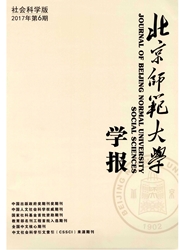

 中文摘要:
中文摘要:
基于北京市2004—2011年的婚姻登记数据的分析表明,近8年北京市男女平均初婚年龄均高出法定婚龄近6岁,且有进一步推迟的趋势,城乡的晚婚率也逐渐提高;法定婚龄对于婚姻决策的影响非常有限,从而具备了下调空间。但是对22岁初婚男性和20岁初婚女性的特征分析表明,早婚人群以农村低教育程度的青年为主。在逆向选择的作用下,降低法定婚龄的潜在惠及人群很可能并不只是少数“确有早婚需要的人”,而是大量并不适宜早婚的群体;政策的引导作用有可能造成更大范围的早婚并引发生育控制、妇幼健康等方面的问题。在我国当前的现实情况下,降低法定婚龄并不能起到调节生育和优化人口结构的作用,宜暂缓实施。
 英文摘要:
英文摘要:
The present authors use the marriage registration data of Beijing during 2004 to 2011 and find that the average first-marriage age of both males and females are 6 years higher than that of the legal marriage age, and is becoming higher along the years. The urban and rural late marriage rates are also increasing in a gradual manner. The influence of legal marriage age on people's marriage decision is much limited, so there is some space for the decrease of legal marriage age. However, through the analysis of the newly married males of 22-year-old and females of 20-year-old, it is found that people of early marriage are mainly rural youth with low educational level. Under the influence of adverse selection, the benefited peo- ple are probably not the minority who need to marry early indeed, but those who are not suitable to marry early. The policy may hence lead to more early-marriage and corresponding problems such as birth control and women-children health. Since the lowering of legal marriage age cannot play the role of adjusting birth rate and improving population structure, it is not proper to implement the policy right now.
 同期刊论文项目
同期刊论文项目
 同项目期刊论文
同项目期刊论文
 期刊信息
期刊信息
